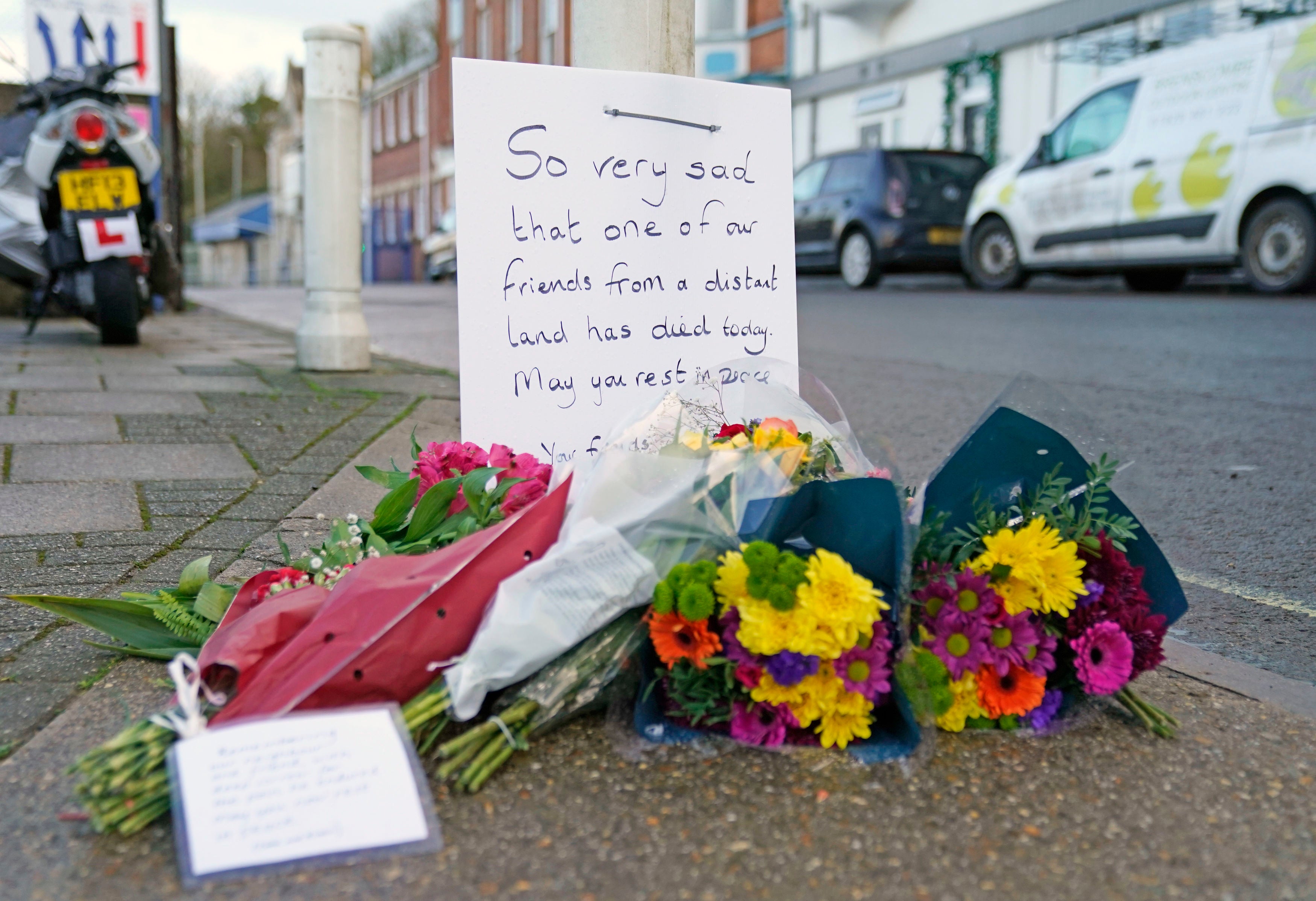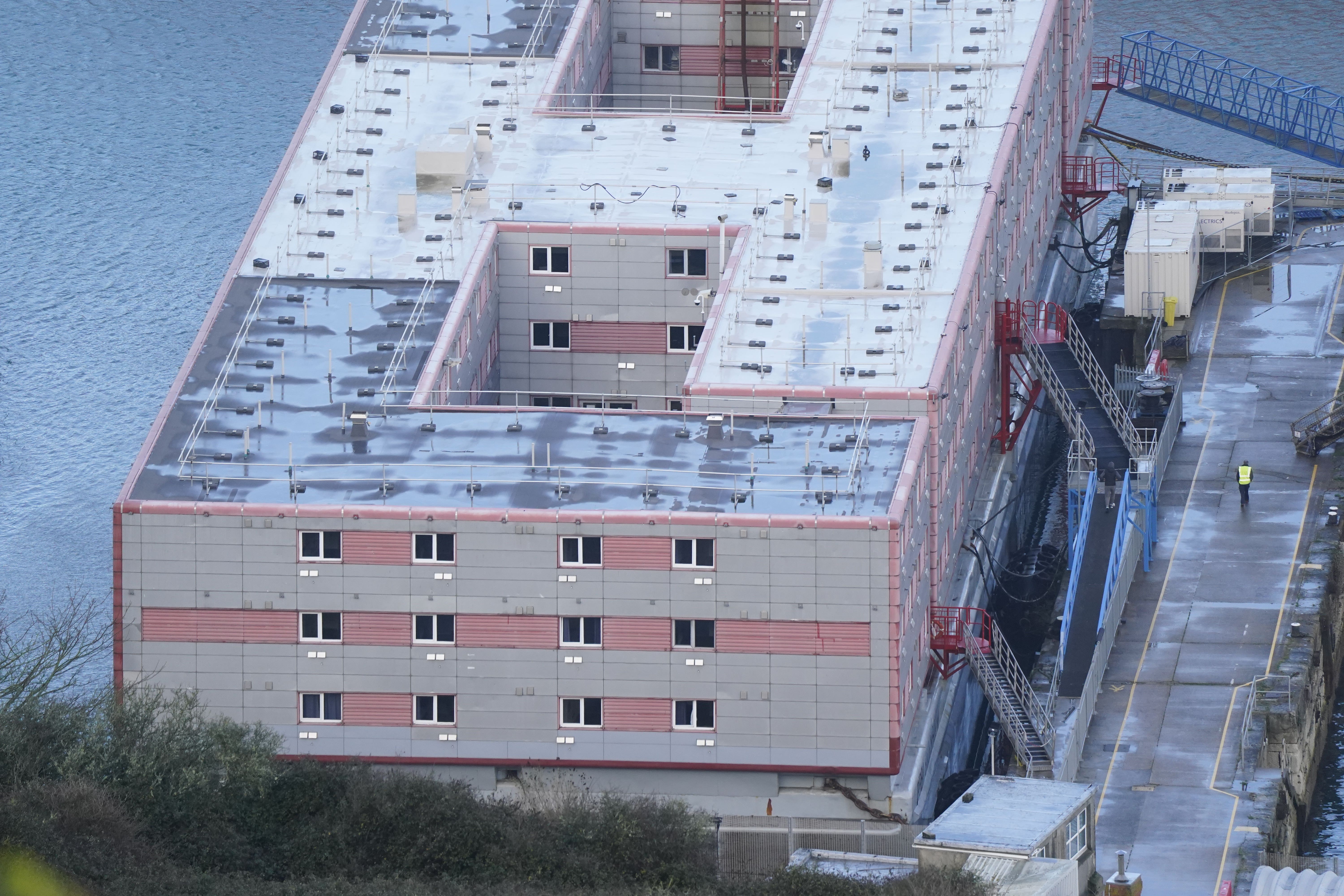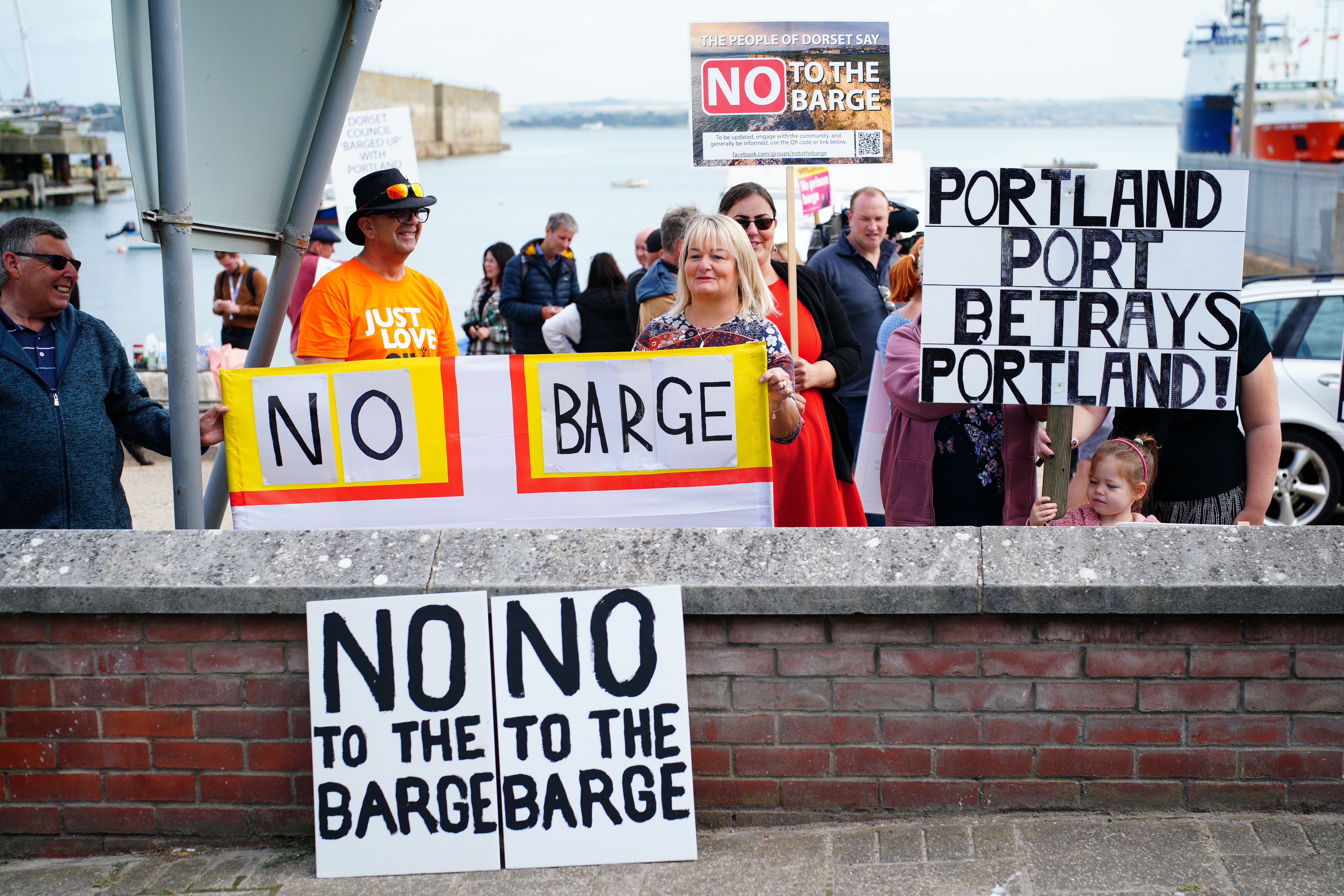Inquest hears Bibby Stockholm asylum-seeker’s cause of death
No suspicious circumstances around death of Leonard Farruku, coroner says

Your support helps us to tell the story
From reproductive rights to climate change to Big Tech, The Independent is on the ground when the story is developing. Whether it's investigating the financials of Elon Musk's pro-Trump PAC or producing our latest documentary, 'The A Word', which shines a light on the American women fighting for reproductive rights, we know how important it is to parse out the facts from the messaging.
At such a critical moment in US history, we need reporters on the ground. Your donation allows us to keep sending journalists to speak to both sides of the story.
The Independent is trusted by Americans across the entire political spectrum. And unlike many other quality news outlets, we choose not to lock Americans out of our reporting and analysis with paywalls. We believe quality journalism should be available to everyone, paid for by those who can afford it.
Your support makes all the difference.An Albanian asylum-seeker died of compression of the neck caused by suspension by ligature, an inquest into his death on the Bibby Stockholm barge has heard.
Leonard Farruku, 27, died aboard the vessel, based at Portland Port off Dorset and used to house migrants, last Tuesday.
He was found unresponsive, the opening of the inquest was told.
Coroner Rachael Griffin said there were not thought to be any suspicious circumstances surrounding the death.
Ms Griffin told the hearing: “At the time of his death, Mr Farruku was residing on the Bibby Stockholm at Portland Port in Dorset.
“He was a single gentleman and he was unemployed at the time of his death.
“He died on the 12th December 2023 on the Bibby Stockholm.
“Police and paramedics had been called to reports of an unresponsive male. The gentleman was confirmed deceased at the scene.”

The inquest, at Dorset Coroner’s Court in Bournemouth, was told that Mr Farruku’s body was formally identified by his cousin, Maranglen Farruku, at the Holly Tree Lodge mortuary in Bournemouth.
Coroner’s officer Nikki Muller said: “He is being supported by officers of Dorset Police.”
Ms Griffin adjourned the hearing until a pre-inquest review to be held on 9 July.
The coroner said she would be requesting statements for the full inquest from Mr Farruku’s family, the Home Office, Portland Port Authority, security provider Isca, Landry and King which operates the Bibby Stockholm, as well as Dorset Council.
No family members were present at the short hearing. But Mr Farruku had claimed migrants there were being treated “like animals”, his sister has previously said.
Home secretary James Cleverly said the sudden death would be fully investigated.
A preliminary inquest hearing is normally held to formally establish the deceased’s identity, location of death and potentially a cause of death before being adjourned for a full hearing at a later date.
Mr Farruku paid 4,000 euros to cross the English Channel in a small boat to arrive in the UK, according to The Daily Telegraph.
His sister, Jola Dushku, 33, who lives in Lombardy in Italy, said her brother had expressed concerns to her about how migrants on the Bibby Stockholm were being treated.
She told The Telegraph: “When I spoke with him last time, he told me that the conditions in that boat were not bad but they were treated by the guards like animals...


“According to our relatives who are in touch with the police, Leonard that night at 11pm in the evening had some problems and was calmed down by the security guard. At 3am he was found dead. We do not have more details about how he died.”
The barge – the first to be used as part of government efforts to cut the cost of asylum accommodation – can house up to 500 men in 200 bedrooms.
Home Office permanent secretary Sir Matthew Rycroft last week revealed to MPs that the cost of the Bibby Stockholm contract was £22,450,772.
He said this covered the “vessel accommodation services” portion of the contract with operators CTM, and that an assessment of whether the vessel offered value for money was being updated.
Asylum-seekers were first moved on board in August but were taken off days later after the discovery of Legionella – the bacteria that can cause the potentially fatal Legionnaires’ disease – in the water supply.
Migrants were taken back to the barge some two months later and civil servants reported last month that there were around 200 people on board.
News of the death drew criticism from charities who called for an independent review and an end to the use of such facilities for asylum accommodation.
Join our commenting forum
Join thought-provoking conversations, follow other Independent readers and see their replies
Comments